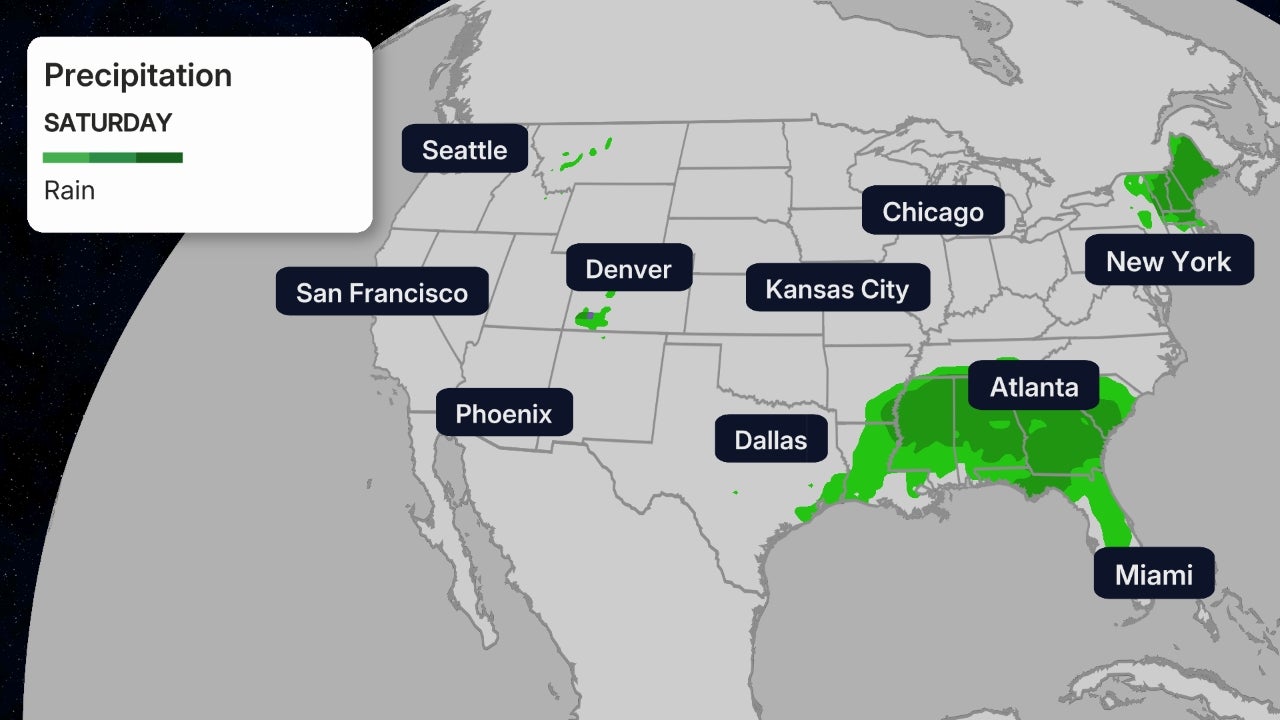weather.com meteorologists
Two areas in the Atlantic are being tracked for possible tropical development, but neither of them pose a significant threat to any land areas.
"Emily" will be the name given to the next Atlantic named storm.
System off U.S. East Coast has a low chance to develop. Showers and thunderstorms continue to bubble up with a low-pressure system located east of North Carolina.
The National Hurricane Center (NHC) has tagged this system Invest 97L, a naming convention used by meteorologists to identify areas that are being monitored for possible tropical development. Tagging such systems allows the NHC to devote extra resources including specialized computer modeling to the system.
Invest 97L could become a short-lived tropical depression or storm over the next day or so before the disturbance merges with a frontal boundary. This system is moving northeast away from the U.S. and is no direct threat to land.
(MORE: Hurricane Season Outlook Update)
 Possible NHC Development
Possible NHC DevelopmentHigh chance central Atlantic system forms into a tropical depression or storm. A second, more organized cluster of showers is associated with low pressure in the central Atlantic, denoted by the red letter "X" in the map above.
The National Hurricane Center said this area of low pressure has a high chance to form into a tropical depression or storm.
This system will track northwest then north over the open Atlantic, which means it's no threat to land.
These two areas being watched for development are a reminder we are heading into the heart of the hurricane season. Much of the season's tropical storm and hurricane activity occurs between August and early October.
(MORE: Hurricane Season's Ramp Up Begins In August)
The Weather Company’s primary journalistic mission is to report on breaking weather news, the environment and the importance of science to our lives. This story does not necessarily represent the position of our parent company, IBM.
The Weather Company’s primary journalistic mission is to report on breaking weather news, the environment and the importance of science to our lives. This story does not necessarily represent the position of our parent company, IBM.

No comments:
Post a Comment